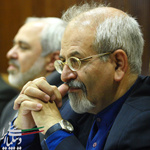Yemen: Complicated and Consequential

The injuries that forced Yemeni President Ali Abdullah Saleh into leaving his country for Saudi Arabia are undoubtedly a harbinger of a turning point not only for Yemen, but also for the Red Sea region, the Middle East, and the international community. Despite its poverty, Yemen has been precious asset in strategic struggles for both regional (e.g. Saudi Arabia) and international actors (the US). The unrest in Yemen has been among the most serious challenges Barack Obama has faced during his presidency. Due to strategic concerns, Washington’s treatment of the Yemen crisis has been different; beginning with lenient advice to Ali Abdullah Saleh to make democratic reforms and moving to cooperation with the Saudis to control the situation and curtail unwanted developments. Three fundamental problems in structure, options and consequences are influencing Washington’s decision-making in Yemen.
Structure
Yemen is one of the poorest Arab countries with a low rate of literacy and a high rate of unemployment. The natural resources of the country are already being drained. Oil resources, which consist of one-third of the country’s revenues, face exhaustion, as do the water resources. In the capital city of Sana’a, prior to the uprising, a daily number of 1000 tankers undertook the function normally belonging to water pipelines; that is, distributing water among citizens. Drought is going to be a serious problem for Yemen in the near future. According to international figures, Sana’a will be one of the major capital cities in the world suffering a lack of water resources.
Yemen is a society with a tribal structure. The diversity of these tribes in terms of culture, religion and political tastes mirrors itself in the struggle between the political elite. As a partner in war against terrorism, this inconsistent team creates many problems for the United States. Sana’a has been one of the main operation fields for US counter-terrorism teams, since poverty, underdevelopment and social crises have created a fertile ground for terrorists. Fighting them without tackling these structural challenges appears to be a taxing assignment.
Options
During the past three decades, or to be more specific, since the 9/11 terrorist attacks, Washington has followed a consistent policy vis-à-vis Yemen; that is, categorical support for Ali Abdullah Saleh as a pioneer and champion of the war against terrorism. Iranophobia as a key trait of Saleh’s foreign policy also brought Washington and Sana’a closer, reinforcing the false façade of stability for Yemen under Saleh’s rule, while what happened under the surface was a totally different story. In fact, Washington is criticized by some observers for adopting a reductionist policy obsessed with terrorism -particularly alQaeda- in Yemen, giving Ali Abdullah Saleh an opportunity to abuse US concerns to prolong his despotism and at times take advantage of White House fears by inciting a fake crisis to derive further support. Even before the September 11 attacks, George W. Bush had acknowledged Yemen as a key partner in the anti-terrorism campaign. Obama toed the line set by Bush, channeling more dollars to Sana’a for the fight, increasing the number of US trainers for the Yemeni military and security forces, dispatching Special Forces to Yemen, and navigating unmanned aircraft over Yemeni airspace to target terrorists. Washington has erroneously minimized its options with respect to Ali Abdullah Saleh, and now faces difficult times with its wrong choice and lack of other options. The knotted Washington-Riyadh approach towards Yemen has complicated the problem. Saudi Arabia has been the most influential actor in Yemen, playing an even more powerful role than the US. However, its strategic preferences are one of the main causes of the current situation in Yemen, creating a precarious situation with deep security implications for the future of the region.
Consequences
What will be the immediate situation in Yemen after Saleh? The answer is not quite clear, but one thing for sure is that neither democracy nor stability will be established in this country in the short-term. Instability in Yemen will not be restricted to its borders. Considering its strategic location, Yemen’s developments will influence the Horn of Africa and the Red Sea region. In fact, many are now whispering of another Somalia to emerge in Yemen. If this country moves towards chaos security in East Africa, as one of the most economically, politically and militarily critical regions -and as the gate to the Indian Ocean- will be jeopardized. As Robert Kaplan argues, the Indian Ocean will be the hot spot for the struggle between great powers and also the emerging powers of India and China in the near future. So the impact of the ongoing events in Yemen on the future of international relations is not ambiguous. The rising wave of anti-Americanism and the intensification of the struggle between anti- and pro-US forces in a country where it is quipped that weapons outnumber people will turn Yemen into one of the most dangerous and problematic regions for the United States.
* Kazam Sajjadpour is a US affairs analyst. He also teaches at the International Relations College of the Iranian Foreign Ministry in Tehran.

